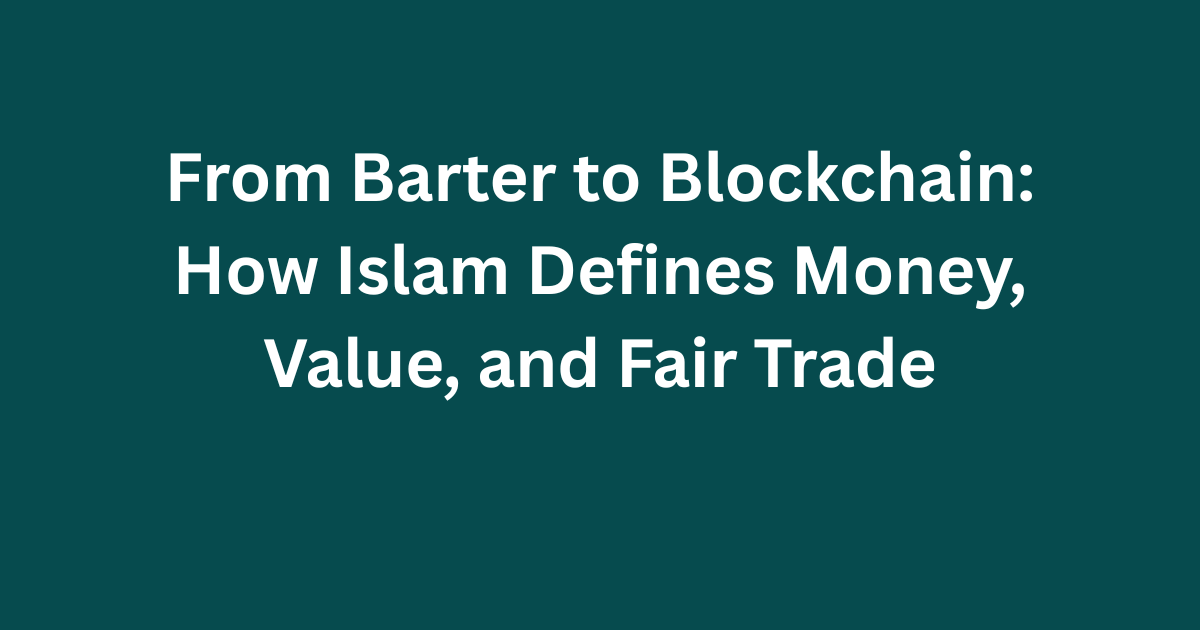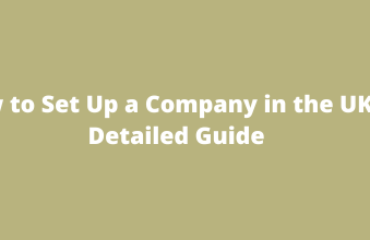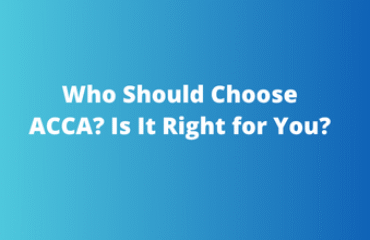Introduction
Long before coins, banks or smartphones, people traded directly — exchanging salt for fish, barley for dates, or cloth for milk. Then came gold and silver coins. Today, we are entering the age of cryptocurrency and digital money.
For Muslims, one timeless question connects these eras: What makes money truly halal?
Islam does not restrict what form money may take — whether salt, gold or cryptocurrency — but it does define how it should function: ethically, fairly and transparently.
This article explores the journey from the early barter markets of Arabia to the age of blockchain, showing how Islam defines money and fair trade.
The Early Days: Barter and Commodity Exchange
Before paper notes or minted coins, people relied on barter — the direct exchange of goods for goods. This system formed the backbone of Arabian trade before Islam.
Farmers, herders and traders exchanged what they had for what they needed: a shepherd might trade wool for barley, a fisherman might give fish for salt, and a date grower might swap dates for grain or milk.
These exchanges worked because they were simple, direct and based on mutual consent. Both sides agreed on what was fair and completed the trade immediately.
When Salt Became “Money”
Salt was more than a seasoning; it was a store of value. In some regions it was so valuable that it was treated as currency.
In West Africa, salt slabs were used as money for centuries. The word “salary” derives from the Latin salarium — the salt payment given to Roman soldiers. Even in parts of Arabia, salt was exchanged for food or livestock, functioning as a trusted medium of exchange.
Islam never prohibited such practices. It simply established principles to ensure fairness and justice in every transaction.
The Prophet’s ﷺ Rule: Equal for Equal, Hand to Hand
“Gold for gold, silver for silver, wheat for wheat, barley for barley, dates for dates, salt for salt — equal for equal, hand to hand. If these differ, sell as you wish, provided it is hand to hand.”
(Sahih Muslim)
This hadith means that if the same commodity is exchanged, it must be equal in quantity and delivered immediately to prevent riba (interest). However, if the items are different — such as salt for barley, or dates for wool — they can be exchanged freely as long as both parties agree and the trade is completed on the spot.
So one kilogram of salt for one kilogram of salt must be equal, but one kilogram of salt for two kilograms of dates is permissible because they are different goods.
How Barter Worked in Practice in the Prophet’s ﷺ Time
During the lifetime of the Prophet ﷺ, barter remained common, particularly in rural areas.
A farmer might offer five kilograms of barley for three kilograms of dates. A fisherman might trade two fish for one kilogram of salt to preserve them. A shepherd might exchange one sheep for ten sacks of grain.
These trades did not require mathematical equality — only mutual consent and immediate delivery.
“Do not consume one another’s wealth unjustly, but only by trade conducted with mutual consent.”
(Surah an-Nisā’, 4:29)
The Prophet ﷺ as a Merchant
Before his prophethood, Muhammad ﷺ was a merchant known as Al-Amīn (the Trustworthy). He managed trade caravans for Khadijah (RA), exporting Arabian goods such as leather and perfume ingredients to Syria and returning with textiles, wheat and metals.
These were often barter-based deals, valued by weight, quality and trust. The Prophet ﷺ’s commercial success came from honesty, clear communication and fair dealing.
“Give full measure and weight with justice and do not deprive people of their due.”
(Surah al-A‘raf, 7:85)
The Market of Madinah: A Model for Ethical Trade
When the Prophet ﷺ migrated to Madinah, he established Souq al-Madinah — a free and fair marketplace based on Islamic ethics.
Key principles included:
- No rent or taxes, ensuring equal opportunity.
- No deception or concealment of defects.
- No monopolies or hoarding.
- Prices set by market forces, not by rulers.
Both barter and coin-based trade were permitted, provided transactions were transparent, immediate and just.
When Delayed Trades Were Allowed
Islam does not forbid delayed transactions outright. It only prohibits those involving riba (interest) or gharar (excessive uncertainty).
The Prophet ﷺ permitted Bay‘ al-Salam, an early form of a forward contract, where payment was made in advance for goods delivered later. The conditions were that the price, quantity and delivery date must be fixed and known to both parties.
This arrangement helped farmers and traders manage cash flow ethically — a model still used in Islamic finance today.
The Companions’ Example
The Prophet’s companions were successful traders who embodied ethical commerce.
Abdur-Rahman ibn ‘Awf (RA) began with nothing in Madinah yet built wealth through honest trade in butter, cheese and cloth — never through riba.
Uthman ibn ‘Affan (RA) was a leading merchant dealing in grains and fabrics. His wealth was earned lawfully and used generously for community welfare, including the purchase of the famous Well of Rumah for public use.
Ali ibn Abi Talib (RA) was known for his integrity in weighing goods and refusing unjust profits.
Their examples show that wealth is not condemned in Islam — only unjust or exploitative gain is.
The Islamic Definition of Money
In Islamic thought, money is defined by its function, not its material.
Money must serve three purposes:
- A medium of exchange — to facilitate trade.
- A measure of value — to compare goods and services.
- A store of value — to preserve purchasing power.
Anything that fulfils these purposes — gold, silver, salt, paper or even digital code — can be considered money if society accepts it and it is used ethically.
This property is known as thamaniyyah (moneyness).
Imam Al-Ghazali wrote: Money was created as a measure between commodities, so that people may deal with justice.
From Dinars to Digital Coins
Gold and Silver (Dinar and Dirham):
In early Islam, gold and silver coins became the standard because they were durable, divisible and universally accepted.
Fiat Money (Paper and Digital):
In the modern era, paper currency replaced coins. Although it has no intrinsic value, Islamic jurists accepted it under the principle of ‘urf (custom) because society recognises it as valuable and it facilitates fair trade.
Cryptocurrency (Bitcoin and Beyond):
Today, cryptocurrency represents a new stage — a form of “digital commodity money”. If it performs the functions of money and avoids speculation (maysir) and excessive uncertainty (gharar), many scholars consider it potentially halal.
As with salt or gold before it, its value depends on trust and acceptance rather than physical substance.
Shariah Criteria for Halal Money
For any form of money — whether ancient or modern — Islam evaluates it by five criteria:
| Principle | Description |
|---|---|
| Legitimacy | Accepted and recognised by society or authority. |
| Transparency | Ownership and transfer must be clear. |
| Stability | Should not cause harm through extreme volatility. |
| Justice | Must not lead to exploitation, hoarding or unfair advantage. |
| Halal Use | Should not be used for haram activities such as fraud or interest. |
Source: Synthesised from Qur’an, Hadith, classical fiqh principles (riba, gharar, ‘urf, la darar), and modern works including AAOIFI Shariah Standards, ISRA Money in Islamic Economics (2019), and Mufti Faraz Adam’s Shariah Analysis of Crypto Assets (2020).
The Timeless Message
From barter to blockchain, the ethical rules of Islamic trade have remained the same: mutual consent, fair value, transparency, and the avoidance of riba, gharar and maysir.
Islamic economics does not oppose trade or innovation; it seeks fairness and balance. What matters most is ethical intention, transparent exchange and fair value. Islam allows flexibility to adopt new forms of currency, as long as they serve humanity without exploitation.
“The truthful and trustworthy merchant will be with the Prophets, the truthful, and the martyrs.”
(Sunan al-Tirmidhi)
References
- Qur’an 4:29, 7:85
- Sahih Muslim, Book of Sales
- Sahih al-Bukhari, Hadith on Dates and Riba
- Imam Al-Ghazali, Ihya Ulum al-Din
- Ibn Khaldun, Muqaddimah
- Mufti Muhammad Abu-Bakar, Is Bitcoin Halal?
- ISRA, Money in Islamic Economics
- Refinitiv, Islamic Finance Development Report 2023




